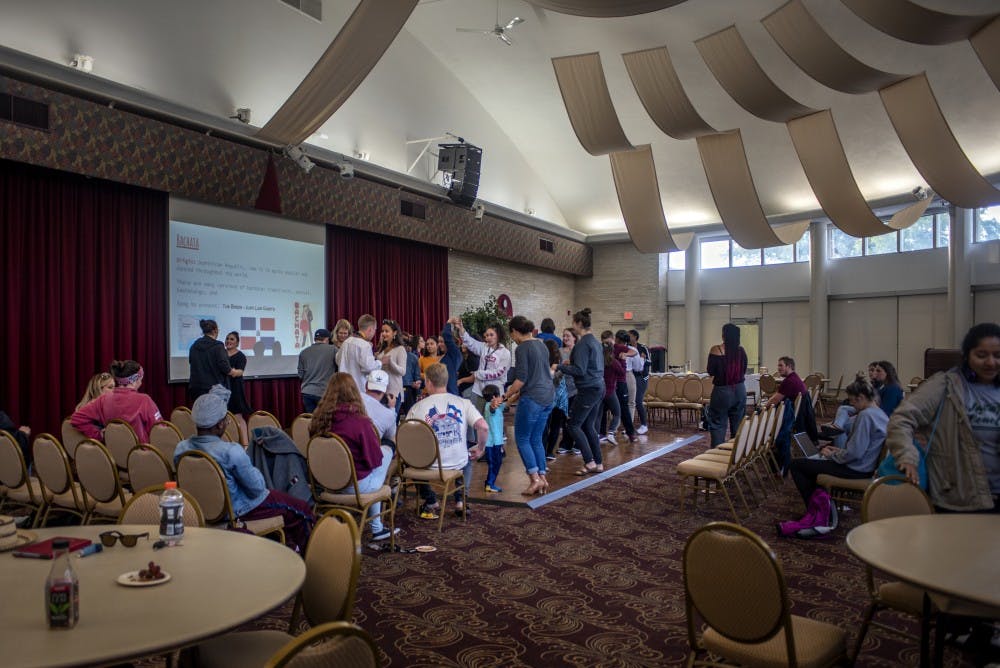Brownstown senior and President of Sigma Delta Pi Austin Garner said, "We do a lot of dance events because we feel like dance is one of the most important things about Hispanic culture and because it's an easy way to spread knowledge and information."
During this demonstration, which was part of Hispanic Heritage Month, members of this chapter did traditional dances that belonged to different countries. Dancing is an artfrom that "speaks many words" without using actual words, Garner said.
Just like every Hispanic culture is unique, every dance has its own story, said Ann Arbor senior Hannah Mauch, vice president of the chapter.
"I'm doing a piece from Mexico called la bruja it's supposed to be the origin story of witches and white magic," Mauch said.
la bruja, meaning "the witch" in English, originated in Veracruz, Mexico and is commonly known as the witch story of Mexico.
Other dances that were performed included la cumbia from Colombia and the merengue and barchata from the Dominican Republic.
"La cumbia is supposed to represent a slave dance because when slaves were chained up at night they could only move one of their feet so around the fire they would move in these big lines," Mauch said. For some, la cumbia is considered the national anthem of the country.
Originating from the 1940s to 1990s, the merengue and barchata were suppressed as a result of a really nasty dictatorship in the country, Mauch said. The dances are symbols of freedom for people, celebrating being Dominican.
"We're really trying to bring it back to life and celebrating it now. It's getting big again and it's really exciting," she said.
Being the only national Spanish honors society and the first foreign language honors society in the country, Sigma Delta Pi focuses on celebrating each other's differences and educating people about problems that occur in Hispanic communities in the United States, Mauch said.
"We are incredibly passionate about these cultures and we love Spanish. There is no one Hispanic culture and every country has its own dialect of Spanish, their own dances, food, and traditional dress form," Mauch said. "It's different everywhere and we are in a time in life where we are really trying to embrace people's identities and trying to stop stereotyping. We feel like we can start to make an impact in our own campus."
Saline freshmen Courtney Rosolowski, "I feel like I grew up in a family not full of a lot of culture. So, seeing other people celebrate their culture and seeing them so passionate about it is super cool."
"Without (dance) I don't think our Spanish cultures would be the same," Mauch said.
People may not realize that CMU is a culturally diverse university, Garner said. It's important for students to attend events like this one to learn about other cultures and expand their minds.
"In this day and age, a lot of people are close minded to especially to the Hispanic culture and we're trying to change that," he said.

No comments:
Post a Comment